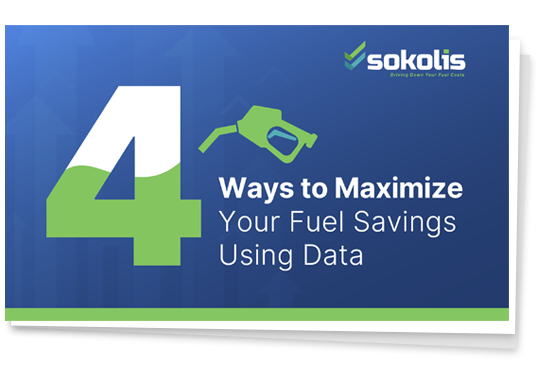 The term “eco driving” refers to a way of driving that’s smarter and more fuel-efficient. And while its ultimate goal is reducing pollution, eco-driving can also help cut down on fuel costs.
The term “eco driving” refers to a way of driving that’s smarter and more fuel-efficient. And while its ultimate goal is reducing pollution, eco-driving can also help cut down on fuel costs.
How much does it help? In 2013, the Volvo Group issued a report that found that eco-driving improved fuel economy in trucks by 10 to 15 percent.
But how do truck drivers embrace eco-driving? SmartDrive performed a study in 2011 that looked at the impact of eco-driving on truck fleets. After evaluating fuel consumption and driver performance for 695 Class 8 tractor trailers and their drivers, the study found that 80 percent of fuel waste could be avoided through softer driving.
The study offered three conclusions:
1. The biggest opportunity to improve fuel efficiency comes from how a truck is operated. Recognizing and correcting inefficient driving practices will lead to improved performance and lowered costs.
2. Drivers need immediate feedback in the vehicle to allow them to make quick corrections and learn the most efficient way to operate their truck. When you see significant week-to-week improvements, you’ll know drivers have embraced these techniques.
3. In addition to feedback, companies need to offer training on better driving practices. The study found that by the end of the second month of practicing new techniques, the top drivers had reduced fuel use by an average of 22 percent, leading to an annual average savings of $12,553.
Their study also suggested a few best practices:
- Truck drivers should make an effort to accelerate and brake smoothly, thereby using power more efficiently.
- By operating within posted speed limits and anticipating the flow of traffic, drivers can maintain a consistent speed and optimize fuel efficiency.
- When drivers reduce excess idling, they reduce fuel consumption and improve their overall MPG.
- Drivers should try to avoid hard turning. Anticipating turns, and then smoothly decelerating in and out of a turn improves fuel efficiency.
The Transportation Research Board published its own report on eco-driving in 2012 and offered a few other tips:
- Vehicles that have instant, fuel economy feedback displays – like the ones found in hybrid vehicles – could reduce highway fuel use by 12 to 14 percent.
- Check tire pressure on a monthly basis.
- Reduce the amount of air conditioning you use.
“Fleet managers are aggressively advancing ecodriving, primarily because of its cost savings,” Ronald Killian wrote in the TRB report. “Managers of business, government, and military fleets are developing programs that decrease fuel consumption and increase safety and savings.”
The report lists a number of examples of corporations that benefited from eco-driving practices.
UPS cut down on left turns when making deliveries in 2004. Over the next eight years, the company saved 10 million gallons of fuel and lowered CO2 emissions by 100,000 metric tons – the equivalent of 5,300 cars staying off the road for one year.
Staples saved nearly a million gallons of fuel a year through its EcoEasy program, which uses anti-idling technology and shift-point speed changes, purchases electric delivery vehicles, provides driver training and limits the top speed of its delivery trucks.
And Frito-Lay saved more than 15 million gallons of fuel after joining the EPA’s SmartWay program, focusing on vehicle technology and maintenance and driver training.
Find more fuel savings with Sokolis
Eco-driving is not only good for the environment, it’s good for your bottom line. But it’s not the only way to save on fuel costs. If you’re interested in finding new ways to save, Sokolis is here to help. We can work with your company’s fuel plan, whether we’re negotiating fuel prices, analyzing your business to see if mobile or bulk fueling will work for you, or assisting you with setting up a fuel card program.
Contact us today to learn more about how Sokolis can put you on the road to fuel savings or click the link below to receive your free fuel audit.
{{cta(‘1c0167df-e458-4b6f-879d-c726d8125d46’)}}
